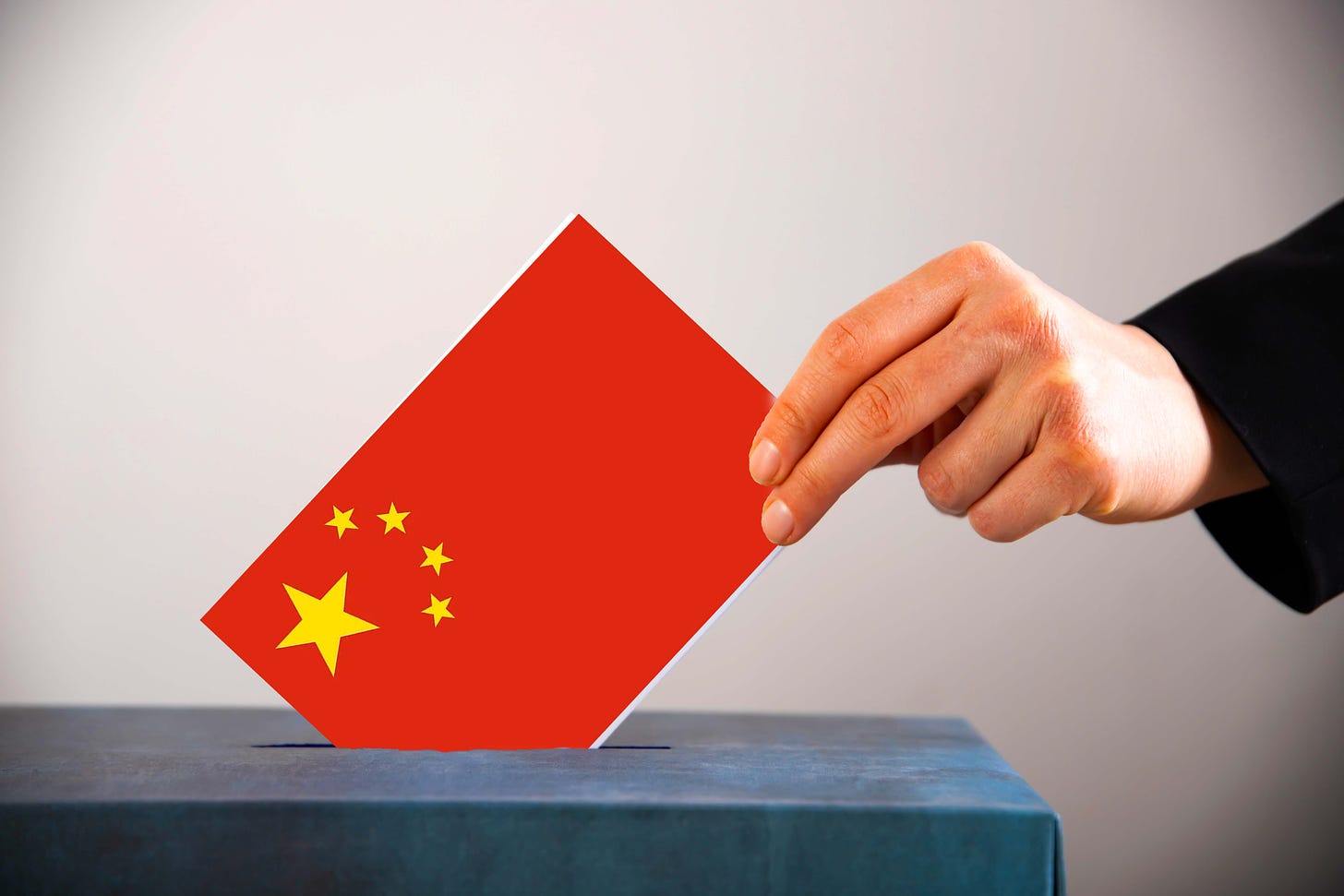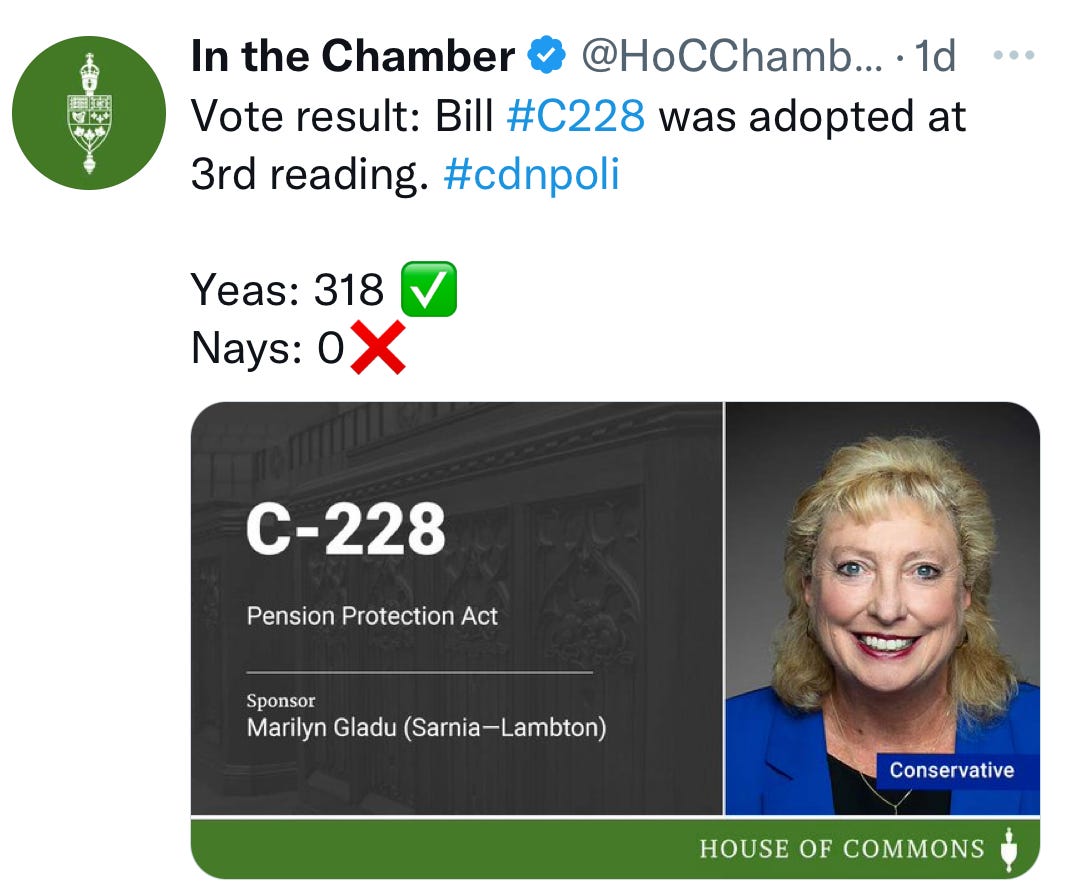Beijing's Interference in the 2019 Election
Plus meeting with craft breweries, crime increases under the Liberals and more...
Beijing’s Foreign Interference in the 2019 Federal Election
It is no secret that the People’s Republic of China (PRC) has become increasingly aggressive and a direct challenger to democratic values and the post-Soviet international world order in recent years. The Beijing government’s persecution of Uyghurs through the use of concentration camps in Xinjiang, threats of annexation towards the independent state of Taiwan, the occupation of the South China Sea even though the United Nations has ruled this violates international law, violation of Hong Kong’s basic law, its jailing of dissidents and its hostage diplomacy as seen by their unjust detention of Michael Spavor and Michael Korvig are just some examples of its increasing belligerence.
It has now taken even more aggressive actions against western democracies. On November 7, Global News reported that Prime Minister Justin Trudeau and several unidentified cabinet ministers were privy to intelligence memos from the Canadian Security Intelligence Service warning them that the PRC’s consulate in Toronto had organized a scheme to interfere in the 2019 federal election. This was accomplished by providing hundreds of thousands of dollars to an elected Member of Provincial Parliament who then circulated the money to at least eleven election candidates and thirteen campaign staff, all of whom were carrying out Beijing’s interests. The memos highlighted other methods the PRC has used to interfere in Canadian domestic politics, such as placing agents into MP offices in order to influence policy, seeking to co-opt and corrupt former Canadian officials to gain leverage in Ottawa, and mounting aggressive campaigns to punish Canadian politicians whom the PRC views as threats to its interests.
When questioned about the report, the Prime Minister and members of his cabinet insist they were not briefed on federal candidates receiving funds from the PRC, despite sources with knowledge of the memos attesting that the PM knew of the issue. In Parliament under questioning from Conservative leader Pierre Poilievre, the Prime Minister avoided answering questions on specific interference and instead accused the Opposition of creating “false concern”.
Yet this concern has long been noted by many in Canada. Conservatives had warned about potential foreign interference for some time. During the 2021 federal election, then-Conservative leader Erin O’Toole and former Vancouver-area MP Kenny Chiu highlighted significant disinformation channels spread by state actors likely directed by Beijing on WeChat and similar mediums, seeking to influence votes against candidates critical of their regime. But beyond the Conservatives, other federal departments have also noted Beijing’s pernicious influence. In March 2020, the security screening branch at Canada Border Services Agency wrote an internal report detailing the widespread campaign of espionage and intimidation against Canadians of Chinese heritage by the PRC. In the document, officials noted the Overseas Chinese Affairs Office was given the role of utilizing intimidation tactics against dissidents of the regime and found various methods to interfere in Canadian public life. In recent months, the RCMP has begun investigations about Chinese ‘police stations’ operating in Canada, used to carry out policing operations on foreign soil, and force Chinese nationals to return to the PRC to face criminal charges. The Canada-PRC parliamentary committee has started an investigation into these same police stations and I first mentioned it here.
The fact is that Canadians alone ought to decide the outcomes of elections, free of foreign interference of any sort, and free of the kind of corruption being advanced by the People’s Republic of China. Upon learning of the reports, Conservatives pushed for the parliamentary committee, already undertaking a foreign intelligence investigation, to extend it to an investigation. This needs to be conducted as soon as possible and better steps need to be taken to counter foreign interference on Canadian soil. I will be following these proceedings closely to ensure the extend of Beijing’s election interference is made public and will keep constituents updated on the matter.
Meeting with Canadian Craft Brewers
Discussion with Canadian Craft Brewers on federal taxation issues facing the industry’s potential continued growth.
Canada: Less Safe under the Liberals
Last week, Liberal’s soft-on-crime C-5 law was passed in Parliament. Helped by the NDP, this bill will eliminate mandatory prison time for a number of serious firearm offenses including: robbery with a firearm, discharging a firearm with intent to harm, and weapons trafficking. It also allows criminals to serve house arrest rather than jail time for a number of offenses, including sexual assault and kidnapping.
This new legislation encompasses this government’s disregard for the public safety of Canadians. Since the Liberals took office, our streets and neighbourhoods have become less safe. Twenty years of crime decreases have vanished under this government.
On violent crime:
32% increase in violent crime since 2015
124,000 more violent crimes last year than in 2015
On homicides:
788 homicides in Canada last year, a 29% increase from the number of homicides in 2015
92% increase in gang related homicides since 2015
On assault:
61% increase in reported sexual assaults since 2015
72% increase in police-reported hate crimes in the past two years
On overdoses
31,000 Canadians lost their lives to overdose between 2016 and 2022
7,169 deaths from opioid overdose in Canada in 2021
21 people a day are dying from overdoses
These statistics, along with the passing of C-5, tells a story of a Liberal government who has lost the plot on taking action to reduce violent crimes and providing public safety.
Conservatives Pass More of their Legislative Agenda
Three of my Conservative colleagues had their bills voted on in Parliament. Private member’s bills are an opportunity to advocate for important issues to individual parliamentarians and also for our ridings. This week’s major legislative landmarks were reached for a pension protection initiative, cryptocurrency framework legislation, and clarifying child sex abuse material in the Criminal Code.
Bill C-228 received unanimous approval, and will now go to the Senate for further study. C-228 protects the pension of workers whose businesses go into bankruptcy. The legislation proposes to prioritize pensioners and their benefits ahead of creditors in case of company bankruptcies which will help protect pensioners.
C-249 was voted down by the NDP, Liberals and Bloc. C-249 would have the Minister of Finance create a national framework to encourage growth in the cryptocurrency sector. Recent price variations and large drops in valuation in different cryptocurrencies has been the leading headline in 2022 for this type of currency. Investors would have been better protected with this framework legislation.
C-291 received unanimous approval and will go to committee for more study. This bill amends the Criminal Code by changing the language around sexual material involving children. Changing ‘child pornography’ to ‘child sexual abuse material’ ensures that all materials involving a minor being exploited in a sexual nature will be covered by the Criminal Code, giving no loophole for those who create and solicit such material.
Auburn Bay Parade of Lights - Tomorrow
I look forward to seeing you all tomorrow at the Auburn Bay Parade of Lights. I’ll have a hot chocolate waiting for you. See you then.









